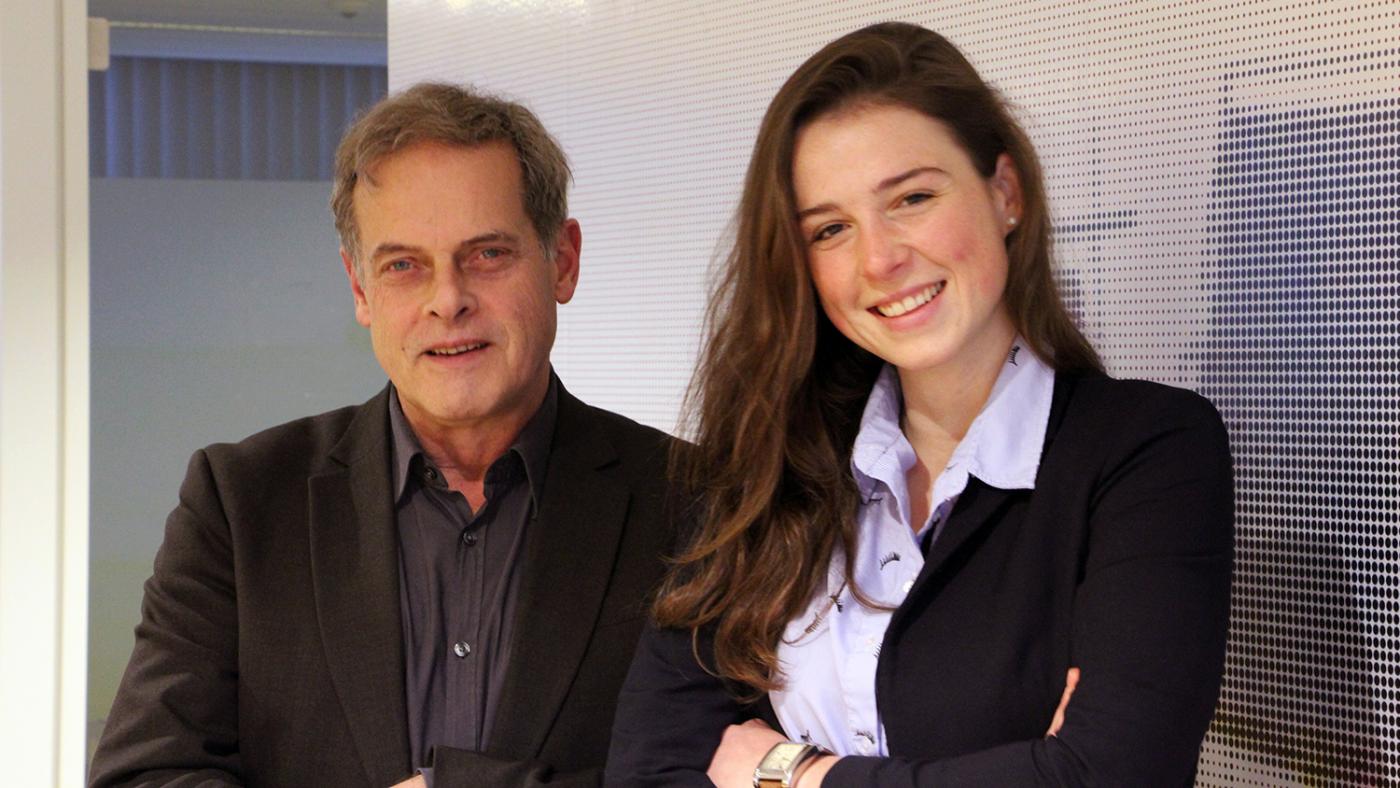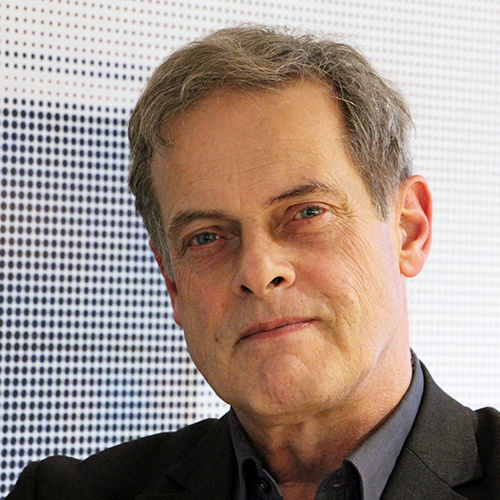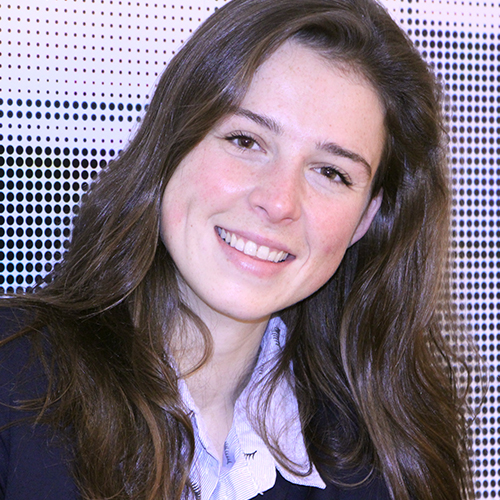How social engagement ignites scientific passion

PhD candidate and young blood Ryanne Francot (26) didn’t learn Dutch until she went to primary school. “Before that time, I mostly spoke Limburgs dialect.” When professor Remedial Education and old dog Paul Leseman (60) speaks, you can’t hear a single bit of proof from his ‘mixture of Brabants and Nijmeegs accents he spoke as a child’. “It’s a shame I’ve unlearned it,” he says. Speaking multiple languages or dialects, the scientists say, is a great asset that’s still not appreciated enough in our society.
Worldwide, there are more multilingual children than bilingual ones. In the Netherlands, the number of children who don’t speak Dutch at home is rising. “But,” Francot says, “schools and parents are often still unsure how to handle this. They wonder, for example, whether it’s a good thing if a child speaks more than one language.” And that’s unsurprising, says Leseman: “In public discourse, Dutch language and culture are presented as the norm more and more often, while diversity and multilingualism are presented as problematic.”
Multilingualism is a great asset
The two scientists attempt to battle that discourse. They say multilingualism has many benefits, and should be encouraged. Leseman: “Research shows that multilingualism trains your brain, that it results in a higher cognitive flexibility, and possibly in greater creativity. And in our globalised world, we need people who speak multiple languages. It provides economic opportunities – they can work for companies that do business with China, Arabic countries, or Turkey…”
But how do you prevent children who grow up multilingual from falling behind in one of their languages? Francot: “It’s important that children come into contact with both languages in the right way, at a young age. Preferably, the mother tongue is encouraged at home, and pre-school teaches Dutch.” Leseman adds: “If children are proficient in their mother tongue, it helps them in learning a second language.” For this goal, the scientists are developing programmes in which children use their first language in learning Dutch.
The negative effects of poverty, discrimination and segregation
The two pedagogues work on these types of programmes within Isotis. In this Horizon2020 project, Leseman is research leader. Francot is doing a PhD on several different subprojects, with a focus on multilingualism in families and educational partnerships between parents and schools.
Multilingualism is just one of the subjects the 70 scientists, from 15 different European universities and institutions, work on within Isotis. Based on large-scale, comparative studies, they try to discover how population groups who face problems in education as a result of their language, cultural background, or income, can still participate optimally.
The studies have already provided a lot of valuable information, says Leseman: “We’re learning a lot, for instance, from a large-scale interview project, for which we talked to 4,000 parents from marginalised groups in ten European countries. Those parents have high ambitions for their children’s success at school, too, and they want to invest in their education. But poverty, discrimination, and segregation have strong negative influences.”
The researchers discovered the importance of the relation between parents and professionals in (pre)schools, neighbourhood facilities and youth care. Francot: “If parents experience a positive connection with professionals, and they feel like these professionals are there to help their children, it mutes the negative effects of poverty, unsafe neighbourhoods, and perceived discrimination.”
Social and scientific passion
The Isotis project ties in with Leseman’s fascination with inequality in education. From the 1980’s on, he’s been studying the problems faced in education by children with a different cultural background of a low socio-economic status.
The subject has only gained relevance since then. Leseman: “In Isotis, we’ve analysed data from large-scale studies in the Netherlands, Germany, the UK, Norway, and Italy. We see the differences in school success between families from different layers of the population are only increasing.” Leseman wants to combat this through his research and the resulting advice and programmes for governments and professionals. “I’m always looking at the bigger picture. How can we create a society that’s safe, inclusive, and offers chances for all children?”
The combined social and scientific passion is what connects Leseman and Francot. The old dog proudly talks about concrete measures taken by governments based on his earlier studies – in preschool daycare and education, for example. Contradicting a long-held belief, Leseman established in the pre-COOL study (website in Dutch ed.) that kindergarten and preschool do help counter language delays in young children. Leseman: “The government is investing an extra 170 million euros in early care for children from disadvantaged situations. That’s a very direct result from our research.”
Privileged position
In his protégé Francot, the professor recognises the same drive to have both scientific and social impact. Where does that dedication come from? Leseman: “I see myself as a privileged person, I was good at learning, and I’m from a pleasant family. I want to give something back because I know this is not the case for everyone.” Francot’s social engagement increased after she travelled the world before starting her PhD. “In India, I worked at a school in a slum. It made me realise just how privileged I am. After I’d returned to the Netherlands, I immediately started volunteering as a language teacher for new immigrants.”
Such social dedication: wouldn’t it be better if these pedagogues took their passion to politics? They laugh off the suggestion. Leseman: “Politicians and policy makers are essential in bringing about change. But as researchers, we love to spend weeks on end fiddling, thinking, trying to understand something and then writing it down. Society needs people like us to think about things in-depth and to collect evidence. That is our contribution.”
The holy fire of science
Francot would like to continue her career in science, as the holy academic fire has ignited in her during her PhD track. In these times of short-term contracts and falling investments, her chances of getting a permanent job are less promising than they’d been when Leseman started his academic career. Does this frighten her? Francot: “To say I’m afraid is a big word, but I do realise it’ll be difficult to stay in science. I really hope things will change in the coming years.” In the next few years, she’ll direct all her enthusiasm towards her research: “I’m incredibly happy with this position. As PhD candidate, you have a job as a researcher, but you also have the possibility of developing yourself further, and finding out what you want.”
Time for a sabbatical
Are there any mistakes in Leseman’s past he wishes he could save his ambitious pupil from making? Determined, he answers: “Don’t become a manager, coordinator, head, director or president from everything and more too quickly. I did do that, which led to situations where I failed to make the most out of some beautiful NWO grants, for instance. It’s good to have at least six years after your PhD track to dedicate entirely to research. That way, you build a solid scientific foundation.”
To save himself from more wrong decisions, Leseman is planning a sabbatical in March, to spend a few months thinking about his discipline and his career. He doesn’t have specific questions yet. Leseman: “I love theoretical subjects, about our outlook on knowledge and learning in relation to creativity and language development. Perhaps I’ll decide to specialise in artificial intelligence. It can go in any direction, really.” But, he adds immediately: “The contemporary social reality is endlessly fascinating to me. So there’s every chance I’ll come back from my sabbatical and continue where I’d left off.”
 |  |
Leseman about Francot: “Ryanne is incredibly ambitious, she keeps working until she’s truly satisfied. She also takes on a lot of responsibility. If colleagues are absent due to illness, she’ll take over tasks without anyone needing to ask her. “That’s a good thing, but it’s also her pitfall. As a mentor, I should tell her that she should prioritise herself a little more often, and to be vocal about her ambitions. That way she can prevent being swamped.” | Francot about Leseman: “Paul treats you like an equal. He takes you seriously as PhD candidate, and that makes it pleasant to work with him. I admire him for everything he does in our discipline. He has a very good reputation and I’m proud to be able to work with him. “If I have to name a downside: he’s so incredibly busy. Paul has tons of projects, and eleven other PhD candidates aside from me, as well as a number of PostDocs. It can be tricky to set up a meeting with him.” |